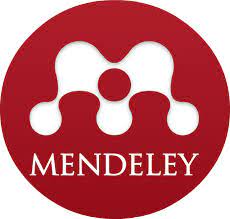PENGELOLAAN SAMPAH RUMAH TANGGA (STUDI PENELITIAN DI DESA KARANG INTAN KECAMATAN KARANG INTAN KABUPATEN BANJAR)
(1) FIA, Universitas Achmad Yani Banjarmasin
(*) Corresponding Author
Sari
Then make an analysis by connecting the existing facts and the data that the researchers get in the field in accordance with the results of observation. After the data obtained from the field then the data is
processed and analyzed by qualitative descriptive way that describes and explains precisely in accordance with the actual situation about the problems in the carefully derived from data that has been collected so that can be drawn conclusions appropriately. The results showed that 64% of the respondents acknowledged the existence of a very important role of local community leaders, while 36% of the community expressed no role from either government in terms of providing socialization / training on how to manage good waste. While 58% of the respondents stated that the infrastructure facilities for waste management of Village Karang Intan are still lacking, while the remaining 32% assumed that the
infrastructure was enough because the respondent community was in front of the road contained in the trash bin, 10% of the respondents did not there is an answer. Public participation in waste management
directly 54% of respondents did not carry out activities directly to manage the environment, and 16% rarely did, and 7% of respondents were quite frequent and 16% frequently carried out waste management
activities.
Kata Kunci
Teks Lengkap:
PDFReferensi
Abdurachman M. 1988. Geografi Perilaku:
Suatu Pengantar Studi Tentang
Persepsi Lingkungan. Jakarta (ID):
P2LPTK.
Budiman RA, Saam Z, Thamrin. 2013.
Partisipasi dan persepsi masyarakat
dalam upaya menjaga mengelola
lingkungan hidup dan
mempertahankan predikat kota bersih.
Jurnal Ilmu Lingkungan [Internet].
[diunduh 2017 Oktober 9].
Candra I. 2012. Partisipasi masyarakat dalam
pengelolaan sampah rumah tangga
(Studi kasus di Kelurahan Siantan
Tengah Kecamatan Pontianak Utara).
Sociodev-Jurnal Ilmu Sosiatri
[internet]. [diunduh 2013 oktober 9];
(1):1-21. Tersedia pada: http://
jurnalmahasiswa.
fisip.untan.ac.id/index.php/jurnalsosiat
ri/article/view/140.
[DPU] Dinas Pekerjaan Umum. 2007. Pedoman
Umum 3R Berbasis Masyarakat di
Kawasan Pemukiman. Jakarta (ID):
Direktorat Pengembangan Penyehatan
Lingkungan Pemukiman.
Harihanto. 2001. Persepsi, Sikap, dan Perilaku
Masyarakat Terhadap Air Sungai
(Kasus: Di DAS Kaligarang, Jawa
Tengah) [disertasi]. Bogor (ID):
Institut Pertanian Bogor.
Koentjaraningrat. 1991. Metode-Metode
Penelitian Masyarakat. Jakarta (ID):
Gramedia.
Muchtar T. 1998. Hubungan karakteristik elit
formal dan elit informal desa dengan
persepsi dan tingkat partisipasi mereka
dalam program P3DT di Kabupaten
Sukabumi [tesis]. Bogor (ID): Institut
Pertanian Bogor.
Peraturan Pemerintah Republik Indonesia
Nomor 81 Tahun 2012 Pengelolaan
Sampah Rumah Tangga dan Sampah
Sejenis Rumah Tangga. 15 Oktober
Tambahan Lembaran Negara
Republik Indoenesia Tahun 2012
Nomor 5347. Jakarta.
Riani. 2014. Bank Sampah di Kota Tangerang
Belum Maksimal [Internet]. [diunduh
Oktober 13].
Rianse U, Abdi. 2009. Metodologi Penelitian
Sosial dan Ekonomi. Jakarta (ID):
Alfabeta.
Sarwono SW. 1995. Psikologi Lingkungan.
Jakarta (ID): Grasindo & Program
Pascasarjana Prodi Psikologi UI.
Sumardjo. 2009. Teknologi partisipatif
pengembangan masyarakat. Modul
Kuliah. Departemen Sains Komunikasi
dan Pengembangan Masyarakat.
Fakultas Ekologi Manusia. Institut
Pertanian Bogor.
Undang-Undang Republik Indonesia Nomor 18
Tahun 2008 Pengelolaan Sampah. 7
Mei 2008. Lembaran Negara Republik
Indonesia Tahun 2008 Nomor 69.
Jakarta.
Yolarita E. 2011. Pengelolaan sampah dengan
prinsip 3R di Kota Solok [tesis].
Bandung (ID): Universitas Padjajaran.
[Internet]. [diunduh 2017 Oktober 2].
DOI: http://dx.doi.org/10.31602/as.v2i2.1180
Refbacks
- Saat ini tidak ada refbacks.

This work is licensed under a Creative Commons Attribution 4.0 International License.











